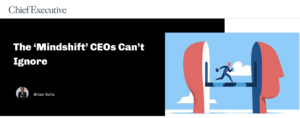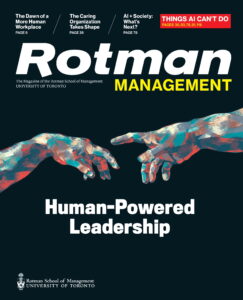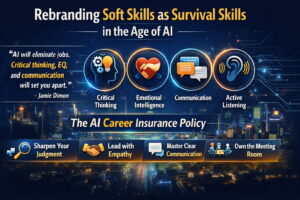Guest post by Roland Deiser and Sylvain Newton
Twenty years ago, on November 18th, 1993, the music band Nirvana agreed to an unplugged performance at the Sony Music Studios in New York City. It was part of a television series called “MTV Unplugged”, which invited popular music groups to perform their songs “naturally”. Unlike in a studio, the sound of instruments would not be electronically amplified and engineered; the artists had rather to rely on the “raw” performance of a piano, a cello, or a guitar. The recording became a milestone of musical history: The album “MTV Unplugged in New York” went on to become number 1 on the Billboard 200, and Rolling Stone magazine ranked it as one of the “Greatest Albums of all Time”.
Defying all commonly held assumptions about what makes a great album – perfect sound, re-mastered tracks, and multiple takes – the Nirvana release stroke a very different chord with its audience. The technical imperfection of the recording was an asset, not a liability. It created a new, authentic, and emotionally powerful musical experience. The natural flaws inherent in playing unplugged brought the performers and their audience closer, the imperfection created a new kind of bond, a new kind of sharing artistic expression.
We would argue that the world of Leadership is ready for its very own “Unplugged” moment.
For centuries, we have held high the image of the perfect, charismatic, know-it-all leader, who excels in everything and in every situation. In this world, every act of communication gets rehearsed, polished, and re-mastered, so that messages become flawless, immune to criticism. Such a protective approach may work for stable organizations in stable times; in today’s volatile and fast changing world it puts leaders under an unbearable pressure to excel, and it detaches them from the world. And it creates an artificial barrier between those at the top and their teams, disinviting collaboration and engagement.
In the world of social media, the “Unplugged” philosophy has long arrived. The YouTube and Twitter generation couldn’t care less about polished videos or super-refined writing. They care about stuff that sparks their interest, they want the opportunity to chime in through comments and mash-ups, and they love communication in real time. For this demographic, a 140 character Tweet, or a “quick and dirty” video taken by a leader on a Smart Phone about insights gained during a customer visit will go a long way to create engagement, and it demonstrates a hands-on, agile leadership style.
Striving for perfectly crafted messages makes sense in the broadcasting world, where a message is “done” once it gets into a distribution channel. In the realm of social media, getting content “out” is only the beginning. The real relevance of a message unfolds once the audience responds and further develops its meaning, by rating, sharing, commenting, liking, re-tweeting, annotating, and so on. In other words: Messages become powerful through socially mediated “co-creation”. It is the involvement of the audience that upgrades the content from “noise” to “value”. Being able to produce messages that inspire others to engage in a process of co-creation becomes vital to any leader in search of an audience.
Compelling content may still be king in the new world of Social Media, but “context is the kingdom” – and a king without a kingdom won’t matter much. No matter how well we target and shape every piece of our communication – the audience will testify to its relevance through their process of active contextualization. If leaders like it or not – communication has become a multi-way street, it has become in its essence anchored in community. It’s a world in which the notion of perfection that tries to answer all questions has become dysfunctional.
When Nirvana recorded their unplugged performance in New York City, the bands lead singer Kurt Cobain insisted his guitar should be connected to his amplifier. His producer installed a fake box close to Cobain looking like a loudspeaker. It was his safe-guard to be willing to go “Unplugged”. What will it take you to go “Unplugged”?
Roland Deiser is a Senior Fellow at the Peter F. Drucker and Masatoshi Ito Graduate School of Management at Claremont Graduate University and author of Designing the Smart Organization. Sylvain Newton is the Senior Leader at GE Crotonville Leadership. Author contacts: rd@rolanddeiser.com (twitter: @rolanddeiser) | sylvain.newton@ge.com (twitter: @sylvainnewton)
Image source: Nirvana Unplugged 20 Years Old






Great article, Roland. Well-written enough to be somewhat ironic, actually! I think you’re absolutely correct in that communication is nested in community. But as much as communication on social should be more informal, doesn’t this mean communication between B2B or between peers needs to get more formal, more perfect, to differentiate? Or does the rise of social mean we’re headed for the lowest common denominator?
Thanks James for reading our post and for your thoughtful comment. Your point is well taken that also in the age of social media certain aspects of communication need to be formal and perfect – just think of communication between an aircraft and the tower, or a crisis situation in which a rescue operation needs to be led without ambiguity. But we equally face an increasing amount of highly ambiguous, uncertain and unpredictable contexts, where answers are usually neither right nor wrong, and where participative discourse is the medium of choice.
This does not mean we head towards the lowest common denominator; I think that competent use of social media channels rather creates a shared understanding of perspectives. This is particularly true for horizontal B2B and peer relationships, as they cannot be mastered well with a vertical command and control model. So I guess it’s important to understand the nature of the challenges that require leadership communication, and to act accordingly. After all, it’s also here not an either/or, but a smart play at the intersection of formal and informal, that ideally creates a positive loop.
Good points, Roland, I really like the analogy of leadership to the “uplugged” music concerts – and I also see a connection to the concept of Tribal Leadership, where the focus is on managing cultural change in organizations through immersed & connected leaders.
Thank you Christian. There is definitely a connection to tribal leadership. Social media just adds the aspect of virtual communities and a new plethora of rich authoring tools that may be overwhelming for many digital immigrants (what most senior leaders in large organizations are). Getting familiar with these tools and starting to reach out through them is quite challenge for many as their use can lead to unintended consequences. The good news is that those who embrace the medium and know how to leverage it will gain influence no matter their formal role. This way social media is breeding a new type of leader, and hopefully a new type of (connected) leadership culture.
Here we go – I am going to try and write this comment without using the delete button to correct or improve what I am trying to say! Even social media gets edited , it is still more crafted than what tumbles out of one’s mouth in a face-to-face conversation, but it has to be as it can be re-posted, tweeted etc… but that does make it less authentic too.
I really like this idea of ‘unplugged leadership’ – we all talk about authentic leadership but how man of us actually knowswhat it means? I think, like the Nirvana gig, it is about ‘truth’ – not hiding from the other participant in the exchange how you have polished and refined your message,. But coming across as another human ‘warts and all’… Theproblem is that given the opportunjity we all want to refine our message – it is human nature but it does not necessarily improve the message in the long-term. People relate to the ‘raw’ in a way we are rarely brave enough to embrace, so the challenge is to create environments where mistakes and inconsistencies are acceptable … and the odd typpo!
ps I did use the delete button to edit – but limited it much more than I normally do…
Thanks for your comment, Roddy. I like your closing argument, that we need “environments where mistakes and inconsistencies are acceptable”. After all, inconsistency fuels conversation – we would not have much discourse (and life, that is) in a world of total alignment.
Smart companies have long recognized that a culture that honors failure is a key requirement for creativity and innovation – it’s the mantra of the Silicon Valley. Actually, I am always amazed at the amount of head-nodding this notion gets among senior executives – usually accompanied by lamenting admissions that “it does not work in our context”. So how can we create these environments?
Roddy…I enjoyed reading your note. Your comparison between “authentic” and “unplugged” is one I have been reflecting upon. While the complete story is still unwritten, one lens to consider is the focus of the leader. In the “Authentic” school of leadership, it is a lot about you, as a leader.It focuses on introspection and explore how you can be (more) authentic. The “Unplugged” view gets its energy from the interaction with others. It is all about “co-creation”. Singing “Unplugged” alone has little value (apart from rehearsing), doing it with others (small gig or mega concert) create a unique energy, connection, experience. The value is created between people. And within this space, a raw soil is so much more fertile to exchanges!
Roland and Sylvain: Very cool that you posted about Nirvana. I’m a huge fan of theirs, and especially of the Unplugged series that aired on MTV. I love how you made the connection between Unplugged and social media (SM), proving that raw and real material and content are king when it comes to being successful on SM channels.
Your discussion of the concept, “co-creation,” was especially interesting to me. In communications, and PR specifically, SM’s role is to create, encourage and maintain a conversation. From a business standpoint, getting consumers to engage with a product or service on SM channels, like Facebook and Twitter, can be extremely advantageous for them. But I think the challenge that many companies and brands are having now is the struggle to stand out in such a large arena. When I was reading this part of your post, it made me think of the chef, Wolfgang Puck, and his active involvement on SM. A couple of years ago, Puck started responding to the Tweets of customers talking about their experience at one of his restaurants. Puck would record a 30-sec, “selfie” video of himself thanking the customer personally and adding a note about their specific experience. From there, those customers would ecstatically share the video across all of their SM channels, showing off their personal message from Chef Puck to all of their friends. I think this applies to your idea of co-creation and the importance of being “unplugged” on social media. And still today, Puck is consistently putting out videos from his kitchen, connecting with his customers on a personal level.
Sometimes I think SM is actually filled with too much raw content. While it has been helpful to Wolfgang Puck’s empire to connect with real videos from his kitchen, do you think that other companies may have a harder time engaging with consumers in this way?
And do you think that co-creation is fostered by unplugged, raw content? In other words, does the really “real” content actually encourage people to engage more as opposed to formal, perfected content?
Glad you like our contribution, Hannah (and great to meet a Nirvana fan :)). You are absolutely right: Creating, encouraging, and maintaining a conversation is key in the realm of social media; there is not much social without engagement. I love your Wolfgang Puck example – it’s a great example for the power of SM when it comes to reinforce a brand and create connections and loyalty. And it took creativity and courage to do it.
You make a good point that while this works for Wolfgang, it may not work for others. Its unlikely that customers would share equally excited a video posted by a middle manager from a no name firm. Celebrity helps.
As to your last question – a clear YES – please check my reply to Jose.
Great article. Any thoughts on how social media and this form of “unplugged leadership” can influence knowledge creation and sharing in organizations?
Love the over-arching theme I see through this post, as well as a quickly rising trend. There is a renaissance taking place among businesses and leadership and it is long overdue. Stripping away the flair and fluff, the pomp and circumstance, and celebrating the coarse and raw aspect of the human being. That is the leader people will follow – a person. Thanks for adding to this conversation!
I’m a huge fan of the co-creation and beauty of imperfection concept being discussed in this. I am constantly being taught that consumers believe people who are most like them. This can only lead me to believe that consumers are going to believe the people the most who are out there tweeting live events, sharing their perspectives and being as real as possible. Thanks for sharing!
Roland, Sylvain – very interesting article. I love your broader
concept about getting a message out to encourage engagement. I noticed
that some of the best discussions with my colleagues started with an
empty whiteboard where we did not try to begin with or try to craft the “perfect” message but focused on evolution of ideas.